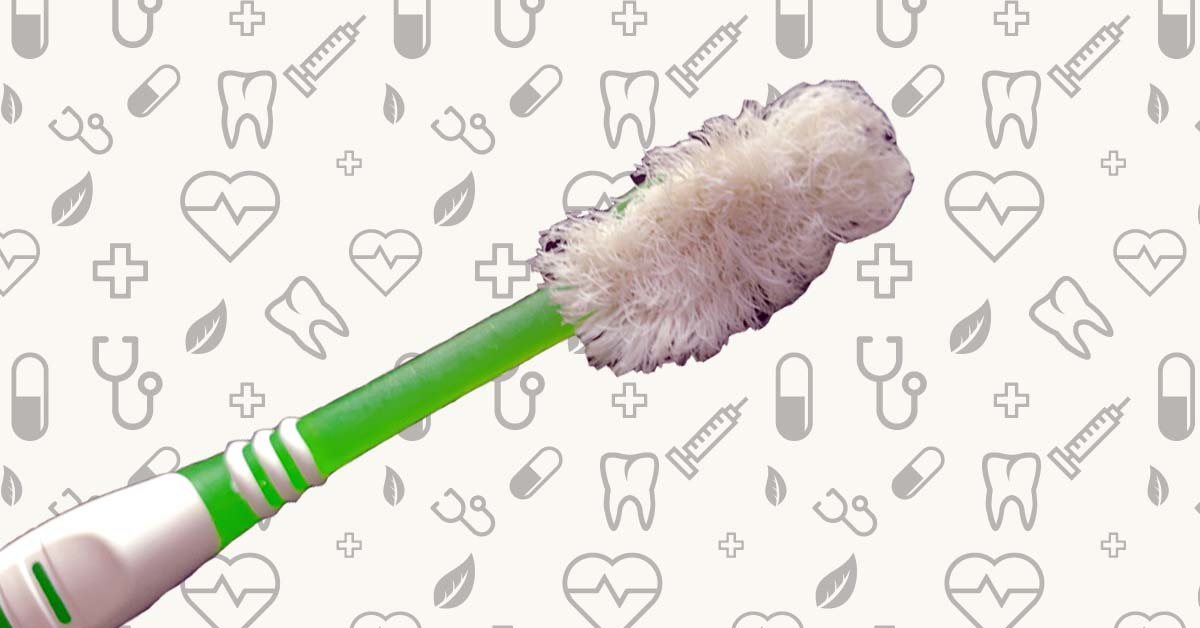
 Dentist Channel Online
Dentist Channel Online
Say bye- bye to your toothbrush after 60 days in use.
It all starts from the mouth; we’ve heard this a couple of times only to realize it always goes deaf years. It’s strange to believe that your toothbrush might be the cause to worry for falling sick often. Let’s try to understand why changing your toothbrush should be given the highest priority when you’re falling sick regularly.
Not everyone loves mornings. Waking up is a herculean task for most of the people especially the youth today. Waking up forcefully or waking up with an incomplete sleep leads us to executing our morning chores just for the sake of it. It’s very common to hear family members complaining that someone else used their brush without even seeing if it belongs to that person. This is one of the main reasons why you could fall sick as the germs and bacteria from another person’s mouth might enter yours.
Here are a few simple steps you must keep in mind:
The head of the brush must be washed thoroughly before applying paste to it. The brush which has been kept in a confined room might not have been washed properly the last time it was used. This might be while you used it to brush your teeth the previous night or the previous morning. Our toothbrush is home to several bacteria we cannot we even imagine. Bacteria such as E. coli and staphylococci (Staph) have made the toothbrush as their shelter. Many university studies have also included that fecal germs are present on the toothbrush in-spite of cleaning it properly.
Do not keep your brush next to the toilet– Most of us have the toilets and washing basin close to each other. At times, we also like the idea of multitasking i.e. using the toilet while brushing. This is certainly not a good idea. Flushing spreads germs in the air which might easily settle down on the toothbrush or on someone’s else kept closer to yours. As both the tasks are important do one at a time. Also, do not keep your toothbrushes closer to the toilet as someone might want to use the toilet in a hurry and might forget flushing which will quickly lead to spreading of germs.
Clean the place/toothbrush holder regularly– Dust is one the most important factors that make a lot us sick. We’ve heard about Dust allergies, but do you know the same dust can get accumulated in the toothbrush too? Since the dust is light in weight it can easily get settled on the brush especially when the brush is wet. Regular cleaning might help to keep the place and the toothbrush free from Dust.
Be gentle when it comes to brushing– Sometimes while brushing, we feel we haven’t brushed satisfactorily, and we end brushing harshly. This is not the correct way as we hurt our gums which might end up bleeding. There’s certainly a possibility that blood might get accumulated on the brush and the same might take a merry-go ride in the mouth. Don’t let your gums bleed while brushing. Brushing correctly, slowly & thoroughly is important than brushing swiftly and harshly.
Star mark the below brownie points in your mind to avoid falling sick often:
Clean & Rinse your toothbrush meticulously before & after brushing your teeth.
Keep it in an open place and free from any dust.
Clean the place/ toothbrush holder regularly
Use a different colour toothbrush from your family members to avoid confusion.
Keep your toothbrush at a fair distance from someone else’s.
Change your toothbrush after 60 days and give highest priority to Oral Hygiene.
Nothing can be compared to our charming smile. Stay healthy and practise good oral hygiene.



Hailey - 8 months ago